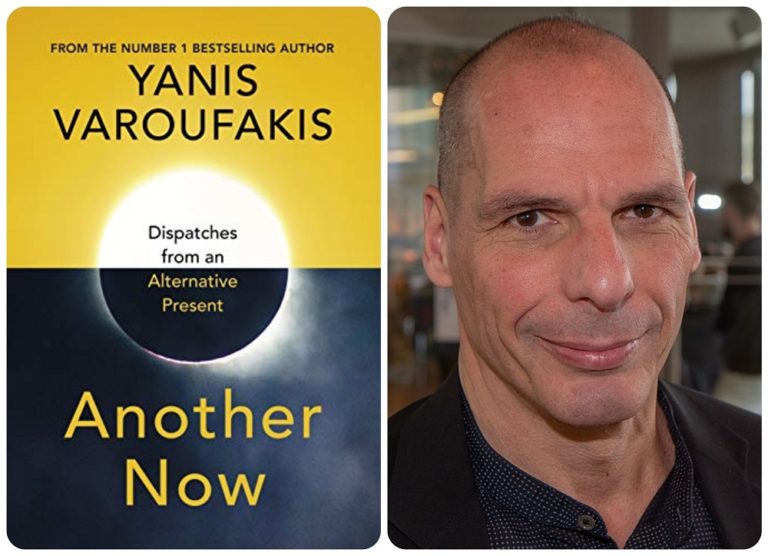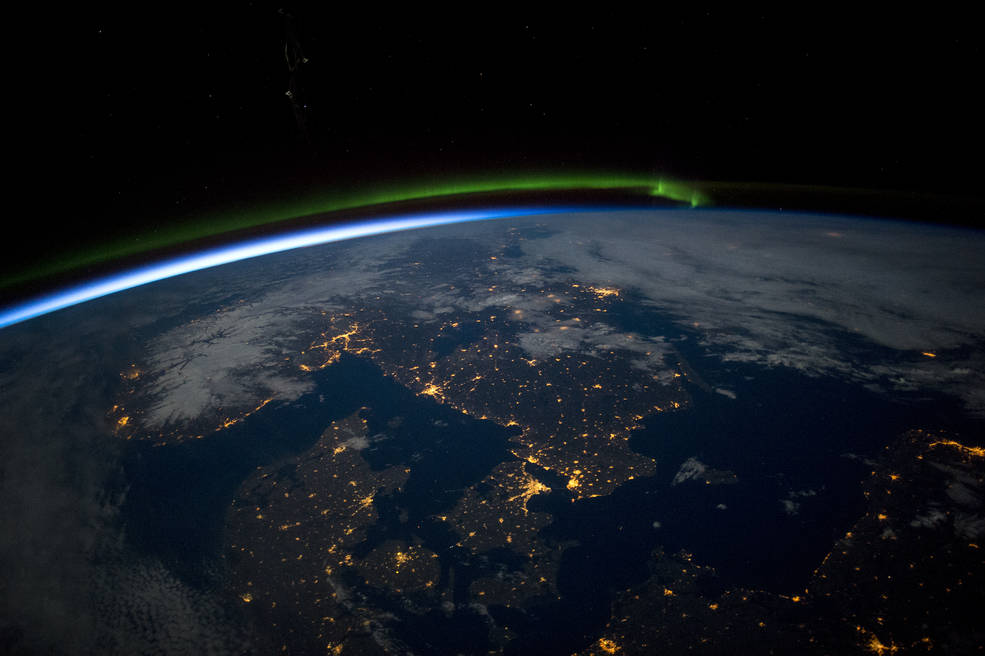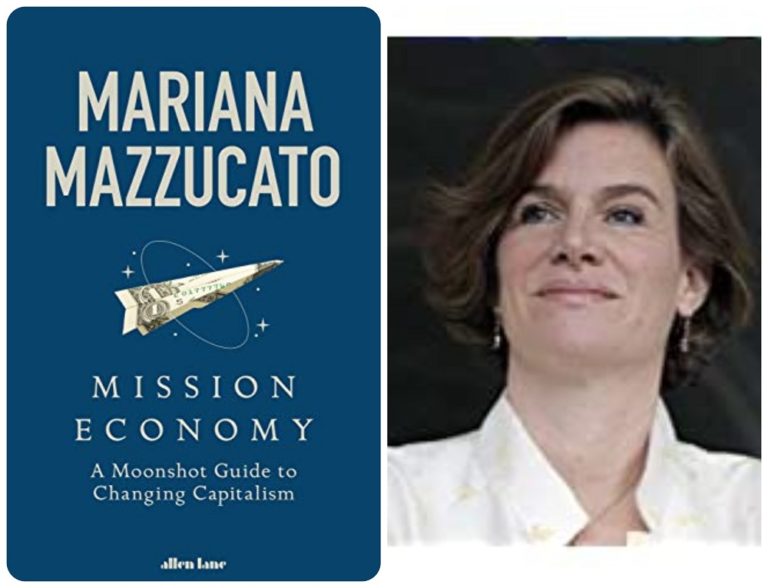Updated 11 Feb 2021. Capitalism as we know it is morphing into an “awful kind of techno feudalism” that only deserves to die, says Yanis Varoufakis. A radical statement but coming from the former finance minister of Greece who famously battled the European Troika for the Greek cause at the height of the debt crisis in 2015, it is no surprise.
Can activists in their battle against shareholder capitalism use financial engineering to bring Wall Street to its knees? That is the scenario Varoufakis proposes in his latest book Another Now: Dispatches from an Alternative Present (published in September 2020 by Vintage), arguing that finance is the Achilles heel of capitalism.  Maybe activists can actually bring Wall Street down – or at least shake it up. Consider the recent GameStop frenzy that has made headlines around the world, the doing of thousands of small investors, enthusiastically dubbed by the press “millennial traders” because they are young and digitally savvy.
Maybe activists can actually bring Wall Street down – or at least shake it up. Consider the recent GameStop frenzy that has made headlines around the world, the doing of thousands of small investors, enthusiastically dubbed by the press “millennial traders” because they are young and digitally savvy.
Gathered on a Reddit forum called “Wallstreetbets”, they rocked Wall Street (or certainly appeared to) when they massively bought GameStop shares, a loss-making video-game retailer, driving up the price from less than $20 last month to over $400 and causing losses for the (nasty) hedge funds that had shorted it. Big losses, reportedly close to $20 billion and double that amount if you count in all the other bets they made (a.k.a. “short squeezes”), among them Amc Entertainment Holdings and Bed Bath & Beyond.
The latest news is that they’re now moving to Europe, shorting gold and silver. Very sophisticated (even if probably short-lived).
With the small guys taking on the big bad wolves of Wall Street, it looked like an episode right out of Another Now, as Varoufakis (gleefully) noted in this video:
What seemed like a wild fantasy of some extremist radical economist like Varoufakis is now beginning to look like an event heralding the parallel world depicted in his book Another Now, with rebel groups taking down the Wall Street giants. I wish it were true – like most people, I’m tired of shareholder capitalism’s financial antics.
Unfortunately, all this trading frenzy is likely not due to “financial activism” of the kind you find in Varoufakis’ book but the result of pandemic-induced lockdown, with tons of people out of a job and staying idle at home, surfing social media, with nothing better to do than join Reddit and digitally dabble into finance – perhaps to try and make ends meet.
Moreover, this “GameStop short nightmare” is not big enough to take down the investment industry as a whole. And the trading episode did not end well for the small investors, with the trading apps (notably Robinhood with 13 million users last year) suddenly suspending trade instead of raising margins which would have been a more normal thing to do to calm the waters. This bizarre over-reaction is likely to lead to a slew of investigations and lawsuits, as Jordan Belfort, an American author and former stockbroker who inspired The Wolf of Wall Street pointed out. Robinhood’s problems increased with a tragic coda when that a 20-year-old college student, Alex Kearns who was playing the market using its platform, took his life last June. On 11 February, the news came out that his parents are suing the company, arguing their son did not understand the intricacies of option-buying and, unable to contact anyone at Robinson, he mistakenly believed that he owed the platform $730,000, a sum he had no hopes of ever covering.
But what is Varoufakis’ book exactly about, besides calling for the end of capitalism (which in and of itself is not particularly new)? I was curious because of who Varoufakis is: Not just a radical economist but in fact one of the most remarkable thinkers of his generation, a mathematician-turned-economist with a rare knack for writing superb, totally intelligible prose (an unusual talent for an economist).
What makes the book a fun read is the format: It presents itself as a wildly imaginative sci-fi novel. The main character, Costa, is an inspired techno guy from Crete (of course, a Greek, like the author) who makes a ton of money on Wall Street and proceeds to build a futuristic machine that enables him to contact his alter ego, a doppelganger with the same DNA who lives in a parallel universe – a mirror image of ours that “forked out”, responding to the economic crisis of 2008 in a completely different manner.
The other characters are Costa’s best friends but with divergent, clashing ideologies. There is Eva, a divorced American neoliberal professor of economics, a free-market fundamentalist and refugee from Lehman brothers who got badly burned in the 2008 crash. And there is Iris, an old leftie, a tapestry-weaving artist and revolutionary feminist who distrusts men and generously keeps her studio open for her friends.
Varoufakis has described them in an article on the UK Guardian as “a Marxist-feminist, a libertarian ex-banker and a maverick technologist”. They get into epic battles throughout the book and Varoufakis, using finely-honed writing techniques, conveys the arguments and discussions using different voices, as his characters exchange information and debate points both with each other and with their counterparts in the alternate universe.
If you wonder why Varoufakis has chosen this format of Socratic-style debates instead of an academic essay, here is his explanation:
“Writing this as a manual would have been unbearable. It would have forced me to pretend that I have taken sides in arguments that remain unresolved in my head – often in my heart.”
What emerges from the book is a fascinating picture of an economic utopia that offers a working alternative to the capitalist system because both the market mechanism and the advanced technology we have grown used to are maintained.
That aspect – retaining markets in an egalitarian “post-capitalist” society functioning without capitalism – is what makes the book so remarkable. Capital and land are democratically placed under the control of citizen groups and local communities. As a result, poverty is eradicated, dignity is restored yet earning bonuses, i.e. the possibility of unequal incomes remains, meritocracy retains its place.
Reforming Capitalism Starts with the Right Diagnostic
To reform capitalism, you first need to identify exactly what went wrong and when.
For Varoufakis it all began 400 years ago. While Shakespeare was putting the finishing touches to Hamlet, a bunch of people elsewhere in London came up with an invention that was to prove fateful: The idea of the joint-stock company in which you can buy and sell shares anonymously. With the establishment of the East India Company in 1599 that acted as an agent of British imperialism in India and China over the next three centuries, capitalism as we know it was born and rose to conquer the world.

But inequality was also born, as the rich could buy more shares and take over control of the company to serve their own interests.
So in Another Now, the rallying revolutionary cry is, “One person, one share, one vote”: Nobody can buy extra shares, by law. Actually, this is not as wild as it sounds. ESOP companies, ie. businesses with employee stock-ownership plans do exist and are successful. The Federal government offers tax breaks to encourage ESOP formation.
But to return to Varoufakis’ book. ESOP here is strict: Each worker in their respective business is given an equal share within the company. And that immediately does away with both the stock markets and banking. And yes, interest rates too.
All that is left is a central bank with the task of managing everyone’s bank accounts. This setup makes it that much easier to implement a form of universal basic income that guarantees a dignified life to everyone. And with a better life for everyone comes a more open attitude towards migrants: The flow of refugees is no longer the problem it is for us.
Housing, jobs, services and community spaces are in the hands of citizen groups and local communities. Profits as a measure of business success are replaced by estimates of the social value added by every business, as judged by the community concerned. Housing is socialized, international trade is stabilized as the successor to the International Monetary Fund, no longer a bailiff punishing indebted countries is given the task to bail them out.
Et voilà, a new, more just world is born. No banks, no stock markets, no tech giants, no billionaires.
A paradise? Not quite. In Another Now not everyone is happy. One in particular, Iris the feminist, sees this other world as a hopeless failure. She points out that she won’t join it because of the toxic continuation of patriarchy. Indeed. This is human nature. Varoufakis makes the point that as a society, we cannot free ourselves from the toxic grasp of racism, sexism, homophobia, and hierarchy. These are not purely economic issues: They are human foibles beyond the reach of economics and (maybe) politics.
Yet his utopia shows how we can do away with at least one obvious ill: economic inequality. When you finish the book, you are left with a conviction: We should not repeat the 2008 mistake. The pandemic is a golden occasion to change the world for the better.
But will we grab it?
How To Reform Capitalism – Varoufakis’ Cyber-Rebels
The strategy people followed in Another Now to reform capitalism after the 2008 crash was not the way we tried to do it in our world, with Occupy Wall Street or the Indignados that wasted their energy in protesting and talking, night after night, rather than doing.
Varoufakis is not kind to them: “pathetic” he says in this lecture he gave to German students in Tubingen University last year, 9 months before publishing his book (but he already has the contours of his utopia firmly in mind). It’s a long video but well worth watching right to the end to get a better grasp of his (iconoclastic) approach:
So, to take down capitalism, what Varoufakis proposes are networks of cyber-revolutionaries, groups of tech-savvy rebels who coordinate attacks against both Wall Street and Main Street. For example, taking aim at giants like Amazon with a disciplined “Day of Inaction” where everyone agrees not to buy anything from Amazon, thereby hurting its bottom line and (maybe) scaring it into submission.
Can such targeted protests and grassroots actions really work? True, the attacks, as Varoufakis imagines them in his book, would start with taking aim at our economy’s most unstable institutions: the stock market and private investment. But would that be enough?
I doubt it.
Varoufakis himself has doubts. He believes that we shall repeat the mistakes we made in 2008 when our governments bailed out the banks that were responsible for the crash. And he clearly says so, several times both in his books and online: This pandemic will leave behind “permanent losers and winners” – but many more losers, killing any chance to change the system.
His judgment on the economic and social impact of the pandemic is devastating. He sees the “poorer and the browner people” as the ones who will have “suffered most from the virus.” If you wonder why, here’s his answer:
“Their poverty had been caused by their disempowerment. It aged them faster. And it made them more vulnerable to disease.”
And just like in 2008, big corporations and the wealthy come out unscathed: “big business, always reliant on the state to impose and enforce the monopolies on which it thrives” have “boosted its privileged position” and the “Amazons of this world flourish[ed], naturally.” And, instead of international cooperation, the “borders will go up and the shutters come down.”
That is a very somber outlook.
Unfortunately, his proposed strategy to change the system is not entirely convincing. True, some rebellions, as documented by the rising Progressive International movement are emerging: 2020 has been a record year in collective action in the tech sector, especially among Amazon workers.
But how many cyber-rebels do you need? How many events, how coordinated? Coordination for them – precisely because of their rebellious nature – is likely to work against the grain. And attacks will peter out, just like the GameStop frenzy died on its own.
What is needed are not attacks from the outside, but from the inside. To remain within Greek metaphors: What is needed is a Trojan horse.
How To Reform Capitalism – Mariana Mazzucato’s Moonshots
The Trojan horse comes from another economist, an Italo-American, a woman, Mariana Mazzucato who has already shaken up the academic world of economics with her bestselling The Entrepreneurial State, published in 2015 with the subtitle: “Debunking Public vs. Private Sector Myths”.
Her solution for post-Covid reconstruction? Work from inside the system.
Give back to the state the role it played back in the 1960s when America, engaged in a space race with the Soviet Union, unleashed the power of the Federal Government.
She lays it out in her new book, just out, January 28, 2021: Mission Economy: A Moonshot Guide to Changing Capitalism (published by Penguin).
Mazzucato is Professor in the Economics of Innovation and Public Value at University College London (UCL) where she is also Founder and Director of the Institute for Innovation and Public Purpose. And her ideas have already been adopted both by the European Commission and the Scottish government. And we’ve mentioned her several times on Impakter as a thought leader, in relation to the covid pandemic and in relation to the breakdown of the free-market ideology.
We are not talking about rebel cyber-groups here or taking down institutions and whole sections of the economy. Her proposal is far simpler: strengthen the role of government in the economy – within certain well-defined parameters.
The way she explains it, she took her inspiration from President Kennedy’s ‘moonshot’ programs which successfully coordinated public and private sectors on a massive scale to compete with the Soviets:
“…landing a man on the moon required both an extremely capable public sector and a purpose-driven partnership with the private sector. Because we have dismantled these capabilities, we cannot hope to repeat earlier successes, let alone achieve ambitious targets such as those outlined in the Sustainable Development Goals (SDGs) and the Paris climate agreement.”
But the “original moonshot model” could be followed to fashion successful policies today.
And she gives some examples. To achieve the 17 SDGs, we should transform each into “several clearly defined missions that would lay the groundwork for more multisectoral, bottom-up innovation.”
To illustrate what she means:
“A plastic-free ocean, for example, will require investment and innovation in areas as different as marine transport, biotech, chemicals, waste management, and design. That is what the Apollo program did by sparking innovation in aeronautics, nutrition, materials science, electronics, software, and other areas.”
Her “mission-oriented approach” does not mean that the government should “pick winners”. What it should do is establish what directions, what paths to follow for change to happen, for example, the “green new deal” and every time, what will be required is “investment and innovation in many sectors”.
As she put it:
We did it to go to the moon. We can do it again to fix our problems and improve the lives of every one of us. We simply can no longer afford not to.
I couldn’t agree more. And what I like about this approach, is that it is eminently doable.
Editor’s Note: The opinions expressed here by Impakter.com columnists are their own, not those of Impakter.com. — In the Featured Photo: The earth seen from space: Southern Scandinavia just before midnight under a full moon…Among the prominent features, you see a green aurora to the north (upper middle of the image) – that could be taken as a symbol of the greening of the Earth that we should strive for. Source: Nasa









